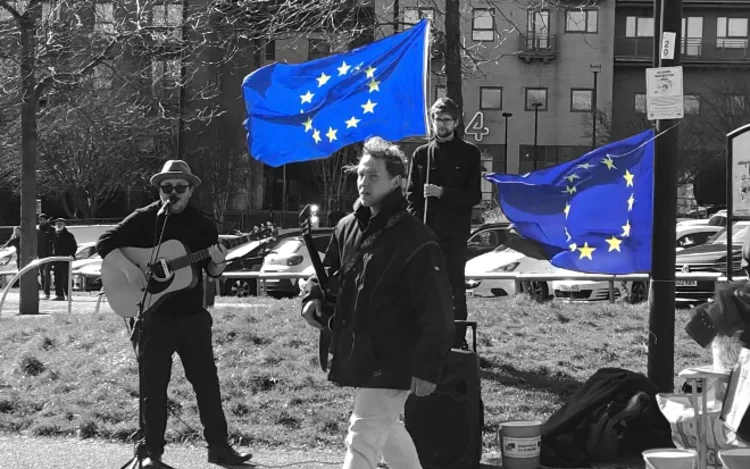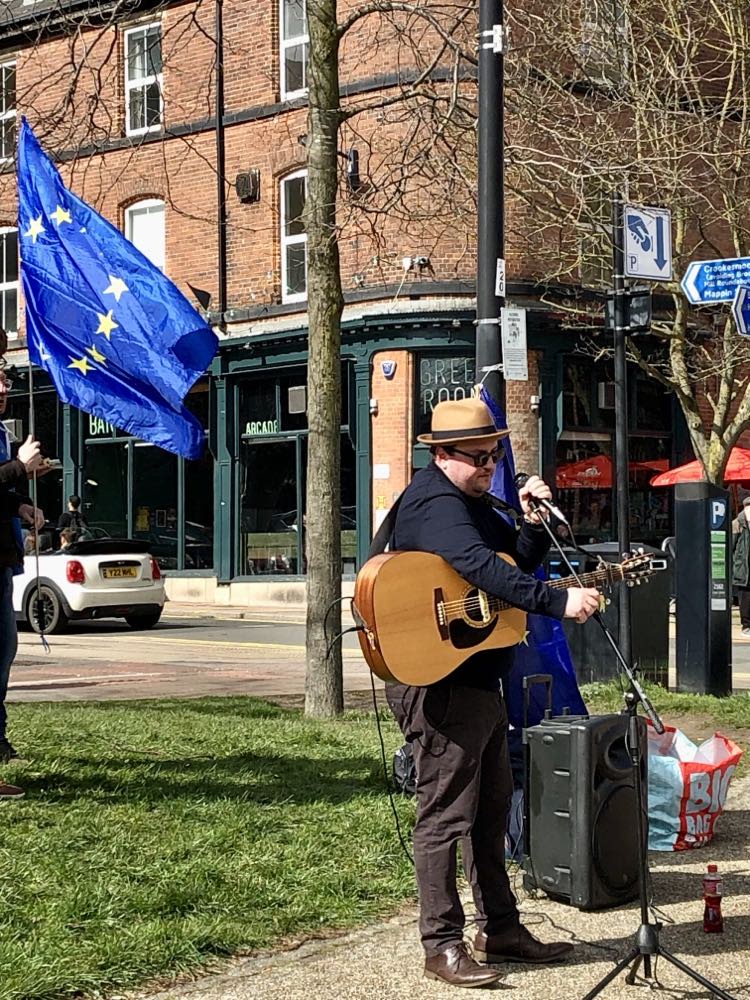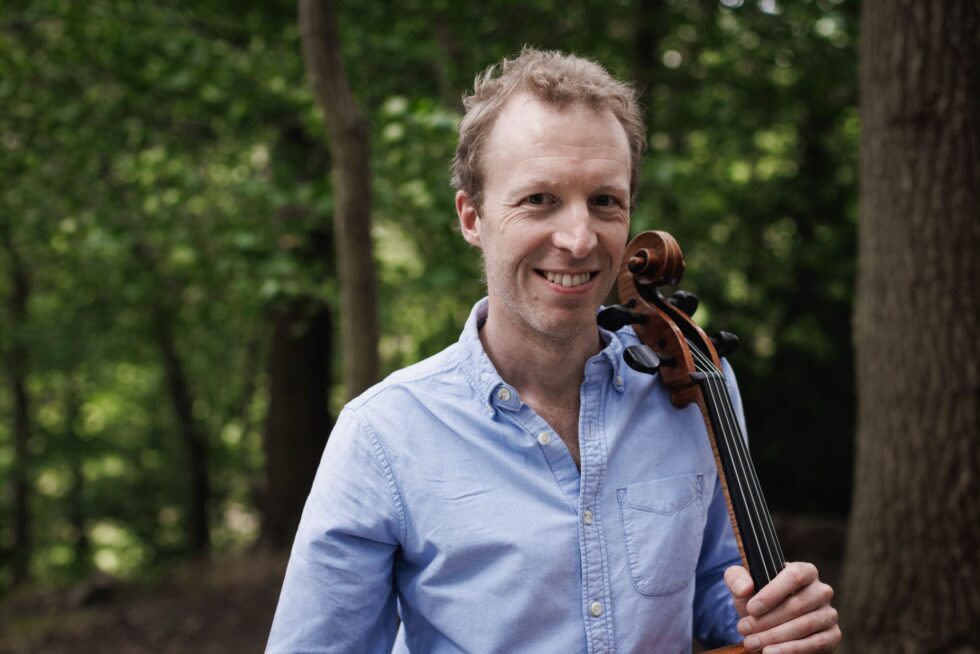"It's eroding the UK music industry"
How Brexit is stifling our young musicians

It is a bright Saturday afternoon as a young woman takes to the stage with only an acoustic guitar, her angry words stopping passers-by in their tracks. This musician, like many others, is against Brexit and she wants you to know why.
"I make music because I believe in the power of art and creativity to send out positive messages," Madeleina Kay says as parents park prams to listen to the young musician.
She adds: "We have to learn from the failure of the remain campaign, which focused on the facts and the negative impacts of Brexit to the economy and missed out a whole level of emotional argument about identity and belonging."
On 25 March, anti-Brexit campaign group National Rejoin March held their National Day for Re-join across the country, from Liverpool to London.
National Rejoin March shared images on their Facebook page of how the day went around the country
Sheffield for Europe hosted an intimate concert in the city park, Devonshire Green, inviting musicians to speak about how Britain's departure from the EU has impacted them.
Madeleina Kay is a 29-year-old British musician and writer, and the 2018 winner of 'Young European of the Year.' She often performs in the EU instead of the UK.

Madeleina Kay. Photo: Bob Singleton
Madeleina Kay. Photo: Bob Singleton
Wielding her guitar, which is decorated with multiple European flag stickers, this new-age Woody Guthrie speaks at me with intent.
Miss Kay said: “It’s eroding the UK music industry. It’s eroding diversity within the music industry because it’s making it much harder for unknown people who have more niche audiences to gain a reputation and have an impact.”
The young woman takes a moment to recall long waiting times at border control, standing for almost two hours and watching as European citizens 'whizz' past her.
A key factor of these delays for British artists, as UK Music suggests, is the introduction of ATA Carnets - a 'time-consuming' customs document that permits the transportation of goods such as instruments and merchandise.
Miss Kay often travels via Eurostar, but the popular rail service is not considered an entry point for Carnets, which may in turn slow down the whole process.
Louis Romégoux, 36, also performed on Saturday. He lived and gigged in Austria and central Europe for a decade before returning to his native Sheffield two years ago.
Mr Romégoux says that even getting paid for gigging in Europe has now become “such a faff”, with the amount of forms needing to be filled out making it difficult for bars and clubs to pay the seasoned musician. This in turn has put him off playing in the country he called home for 10 years.

Louis Romégoux is an Anglo-French folk musician.
Louis Romégoux is an Anglo-French folk musician.
Brexit has not only impacted established musicians such as Kay and Romégoux, but it appears to be hitting young artists within their education.
In January, Higher Education Statistics Agency reported that first year university enrolment of European students had dropped by 53 percent between 2020-21 to 2021-22, with most students arriving from France over any other EU country.
While these figures are not unique to the study of music, it is hard to deny the collaborative nature of this particular field.
With European students decreased by more than half in a single year, it is no wonder that some music tutors are concerned with the decline of diversity in their classrooms.
This is certainly the case for cellist Tim Smedley, the head of chamber music at The Royal Birmingham Conservatoire, who seems perplexed by the whole concept.

Tim Smedley has been a musician since the age of eight.
Tim Smedley has been a musician since the age of eight.
Mr Smedley, 42, says: “It has a knock-on effect on the industry. The lack of European students means that the UK is much less of a cultural melting pot as we have far fewer ideas and influences coming from other places. It has reached the point where the cost to study here and what they get out of it is probably not worth it when they could study elsewhere in Europe."
The cellist is alluding to the higher tuition fees that now exist for EU students. They could be paying four times as much as they were (£40,000 a year for some, depending on the degree).
Mr Smedley says: "I don’t see what could possibly be to gain. By building more barriers, instead of trying to knock them down, we are just making the world smaller.”
At the end of Sheffield for Europe's event, the campaign's secretary, Mary Senevirante, tells me they had hoped for a bigger crowd.
Although few, the people that gathered in support of these musicians and their cause, did so with a passion and an urge that is hard to ignore.
Or is it?



